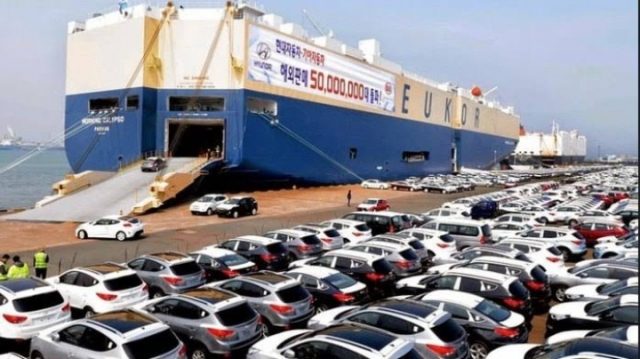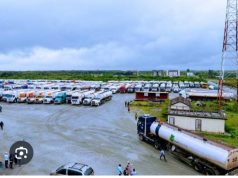By Omenihu Alfred fibmn
The dramatic increase of multiple taxation on imported vehicle in Nigeria by the federal and state government is getting very worrisome. Recently, Lagos government introduced new charge of N4,600 on all imported vehicles coming out of ports in the state.
Known as the Temporary Vehicle Tag, TVT, the charge was introduced by the Lagos State Ministry of Transportation; Motor Vehicle Administration Agency, MVAA. As a matter of this development is generating tension as port users and vehicle importers have vowed to resist the introduction of the new charge.
It was also gathered that the Nigerian Ports Authority, NPA, has reportedly linked TVT payment to the Terminal Delivery Order, TDO, and directed terminal operators not to release any vehicle without evidence of payment.
Confirming the development, the Managing Director of the Lagos State Wharf Landing Fee Collection Authority, Mr. Gboyega Savaldor said the introduction of the charge is for the security of everybody living in Lagos.
The MD also noted that the new charge will check the use of unregistered vehicles by dealers who sometimes use these categories of vehicles for criminal purposes. He further disclosed that after payment of N4,600, the clearing agents would be issued a sticker that would be placed on the vehicle. This allows the vehicle to be driven within Lagos for the period of one month.
Reacting to the development, clearing agents at the port lamented that they were being overtaxed by the Lagos Government because already, Wharf Landing Fees are being collected on all cargoes, including vehicles.
“The Wharf Landing Fee is being operated under a law. The money collected is not for Lagos State Government, it is to assist the operators. The Lagos government is inconveniencing itself to do this, the money is being collected to eradicate area boys harassing truck drivers on Lagos roads, and the money is shared among local government areas” he said.










